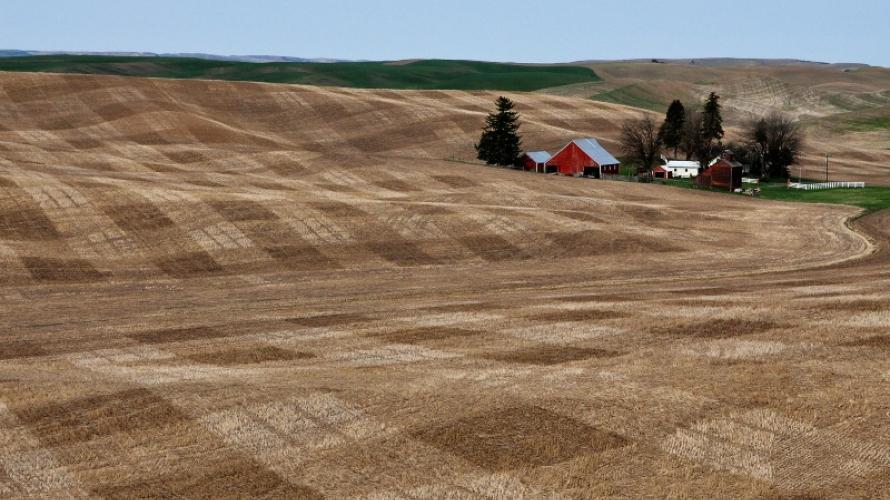
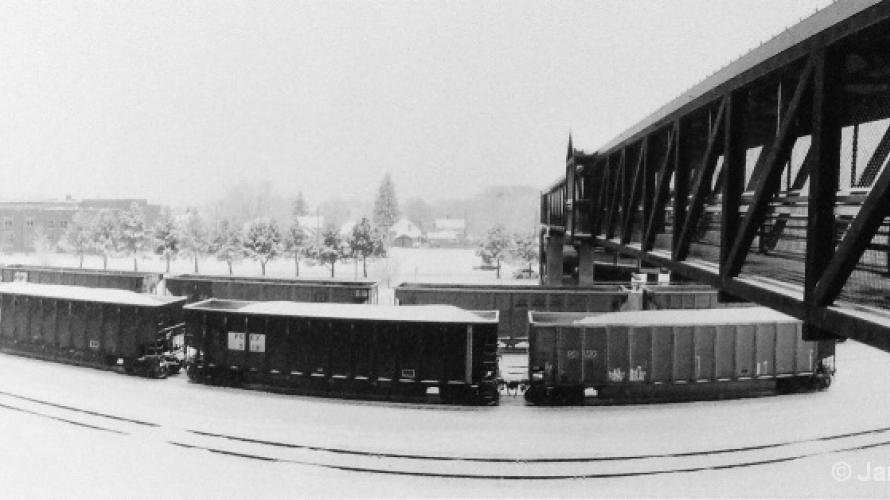
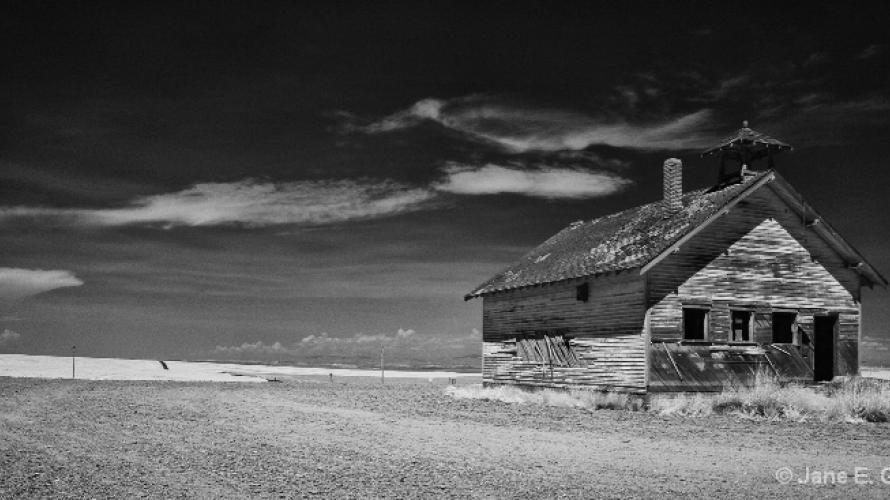
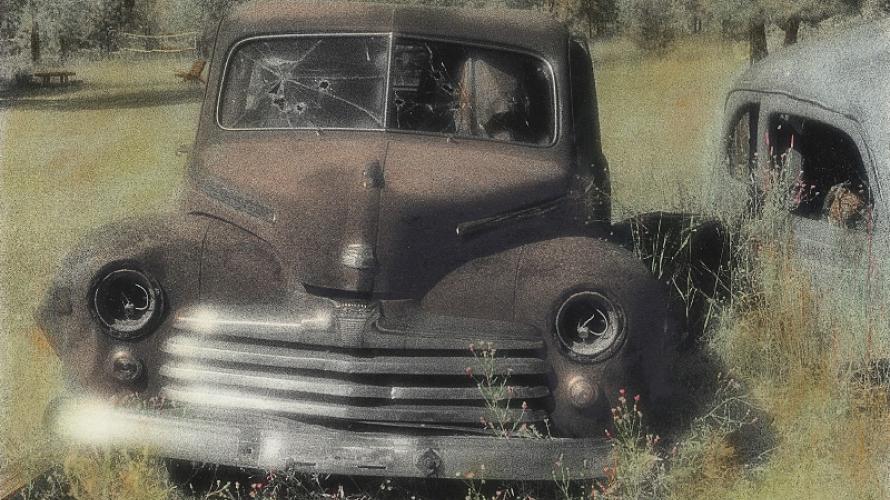
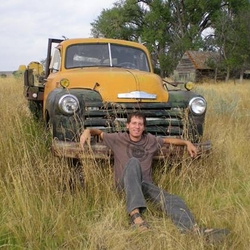
Brian D'Ambrosio is a writer/editor living in Missoula.
*****************
In calm moments, we often recognize what is imperative in life and what isn’t. Reflective seconds make us wiser and shed key light on those things both essential and non-essential.
Jane Goffe finds quietude in photography. In her lightly diffused and toned impressionistic landscapes and still life index, she freezes silent characteristics of snowy train depots, bursting grain elevators, and rickety ghost town staircases.
Goffe’s images – stark Missoula railways, poised barnyard and agricultural scenes, and windshield-shattered pickup trucks – express her primary manner of feeling, of communicating, of loving.
Photography is her way of not only living apart from strife, but believing in herself, and perpetuating her sharpest visceral memories. She preserves those things with which she has a deep attachment to.
“I like to photograph old clunkers,” says Goffe. “The reason is because I was born in eastern North Dakota, and my father and grandfather owned a Studebaker dealership. My dad worked on vintage and old models. That’s my connection.”
Goffe works with traditional silver gelatin prints, which she custom prints in her own darkroom. All prints are toned and processed to archival standards.
Each photograph is mounted on archival, acid-free mat board, signed, numbered and labeled.
“No two of my prints are alike,” says Goffe. “It’s one of the reasons I don’t like digital as much as traditional black and white film. With digital, you can create an image and then print a million of them.”
Goffe sees black and white photography as a gift, a great
mystery, a genre she respects with all the thanks and greatness
of a closing prayer. It’s provided her with an ample arsenal of
sharp-looking memories.
“Black and white photography is more about connections,” says
Goffe. “It’s not like a piece of décor that matches the sofa. We
connect emotionally to it; connect to it with a passion not found in
color. Black and white requires truer composition, too.”
Goffe has been shooting with a 35 millimeter Nikon film camera
for thirty years. The camera has always been her guide, and it's
allowed her to see things and focus on things that perhaps an
average person wouldn't even notice. She is also an avid collector
of vintage cameras. “I’ve even got old Kodak ones that are one
hundred years old,” says Goffe.
No matter what she shoots with, Goffe’s eye naturally gravitates
to fleeting moments in our lives. She knows how to seize
moments that would otherwise have evaporated into the forgotten
past. Seize moments that fade or morph into our distinctly
selective version of reality. Without Goffe’s photography, several
very special split seconds would have lost their truth, beauty and
glory.
Often photography is a thankless position to take on as an
occupation. In an era of digital manipulation and ubiquitously
free imagery, the price associated with the professional
photographer’s skill and product has plummeted. To make
matters tougher, the present market for black and white
photography is especially narrow.
“Maybe two percent of people are looking for a photo that they
can emotionally connect to,” says Goffe. “People who take the
time to look and observe and absorb the photo, are fewer than
ever, it seems. But when someone tells me a photo reminds
them of a feeling, time or a place in their lives, that’s still most
rewarding.”
So Goffe will push forward, push forward capturing the marked
stillness of grain elevators and train depots. Push forward as a
way to settle down. Push forward in the steely reserve and silence
of her art.
“My work has a very quiet, peaceful feeling,” says Goffe. “Our
society is bombarded with images. In the end, it is nice to offer
that quiet image for one to connect to.”



